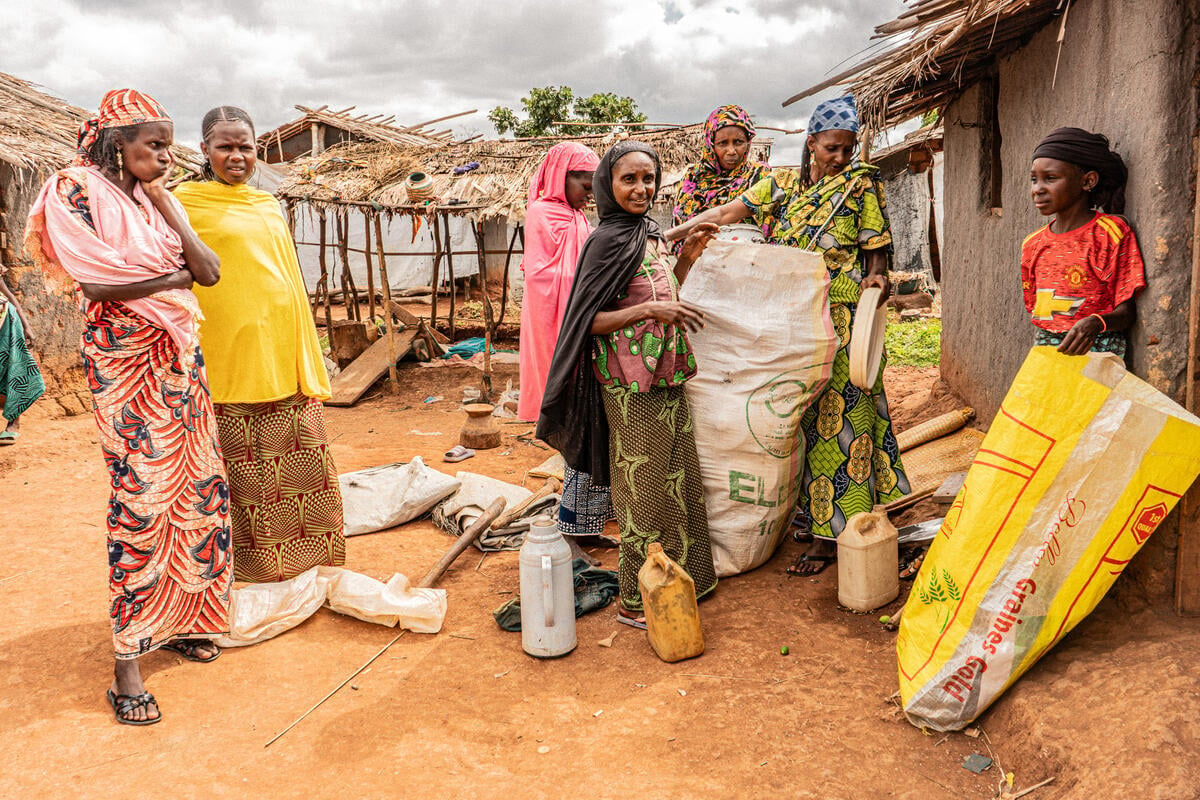UNHCR unites refugees and host communities in Chad
UNHCR unites refugees and host communities in Chad

GORE, Chad, March 9 (UNHCR) - Two years ago, UNHCR closed health centres in two refugee camps in the south of Chad and opened a new one in a local village between the camps. It could serve as a symbol of all the refugee agency's policies in the area: UNHCR understood that both fairness and success required showing concern for refugees and their hosts in exile.
The UNHCR office in the town of Gore used to initiate small-scale projects, like drilling wells that benefitted the local population, on an ad-hoc basis to reduce potential resentment of the refugees. But since 2008, UNHCR has systematically promoted initiatives to help integrate refugees into the local community.
"If we engage refugees and host communities in sharing the assistance we provide, we actually can achieve a lot for local villages, who usually are being left behind," said Janet Lim, UNHCR's assistant high commissioner for operations, who visited Gore last month. "After all, host communities are living side-by-side with refugees and sharing their resources - it's only fair for UNHCR to engage in some development activities and not lose sight of their needs."
At the beginning of this year, there were some 68,000 refugees from Central African Republic (CAR) in the south and south-east of Chad. They have been fleeing violence and banditry in northern CAR since 2003 and there is little prospect of an early return home. Making them a self-sufficient part of the community is the best solution.
"The medical centre in Beureuh that replaced clinics in the camps of Amboko and Gondje is equally open for the refugees and the local population; it's run by the [Chad] ministry of health, supported by a mixed committee composed of both populations," said Monica Sandri, head of the UNHCR sub-office in Gore.
"From this year, the office will also increase assistance to the hospital in Gore, which covers more than 30,000 local people in the area," she added.
It's a similar story in education. Elementary schools in all the camps accept both refugees and local children, with the management increasingly handled by Parent Teacher Associations (PTA) drawn from refugees and the local population. In addition, UNHCR and its partners built a junior high school in Beureuh that is run by the ministry of education with support of a PTA of refugees and local population.
They also constructed a vocational training centre in Beureuh that takes 250 students from both groups. After graduating, the students are encouraged to form mixed groups and start small businesses.
UNHCR has achieved this progress by developing close relationships with local authorities and refugee leaders, elected by the whole population. Jointly, they all help determine the medium and long-term strategies for UNHCR's activities in the area.
"The strategy of the office to transform the emergency mode to development-oriented assistance - and to promote the socio-economic integration of refugees - is clearly communicated to the refugee leaders and, through reinforced awareness campaigns, in the camps," Sandri said.
The key activity - absorbing the largest portion of UNHCR's local budget - goes for improving the productivity in agriculture, livestock and other income-generation work. It is essential to demonstrating that the presence of refugees is not an economic threat but a potential benefit to everyone in the community.
"There are mixed groups of small producers, which are spontaneously organized by refugees and local population. UNHCR actively promotes their joint activities," Sandri said. "We also work with the local village chiefs to gain the refugees access to farming lands, and prioritize assistance to benefit those living in the villages that collaborate."
This concerted effort to promote cooperation between the refugees and the local population is demonstrated on key celebratory days such as World Refugee Day, which are staged in local communities instead of refugee camps. Not only are the activities jointly planned and implemented by Chadian authorities and refugee leaders, there are public awards during the celebration to honour the activities in which refugees and local citizens collaborated.
"In Chad we say that if a stranger comes tired and knocks at your door, you have to feed him and host him", said Clement Nangdoh, village chief of Beureh. "But actually we profited so much from the refugees' presence. Now we have a clinic, a school and a professional training centre, while before they arrived we had absolutely nothing."









